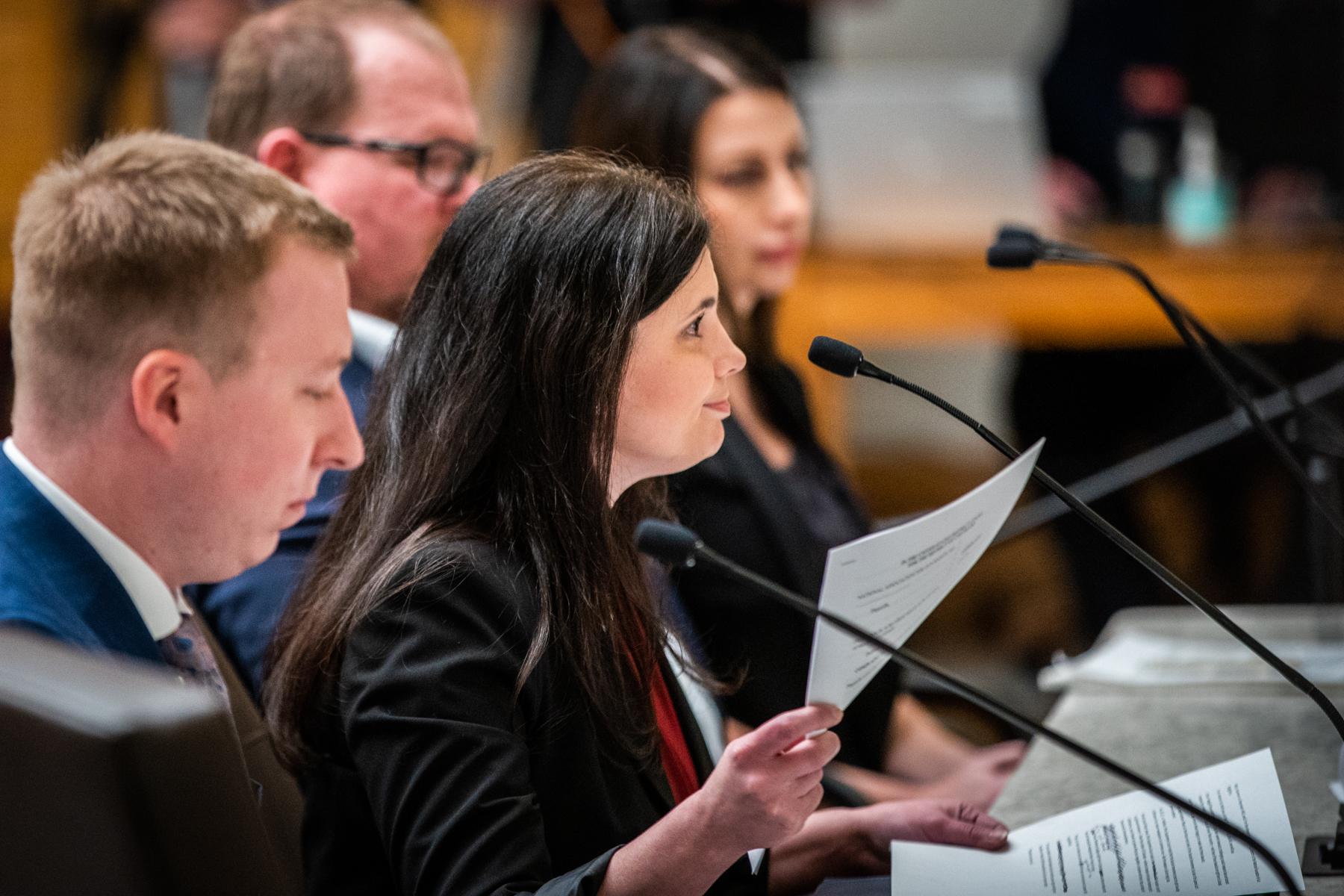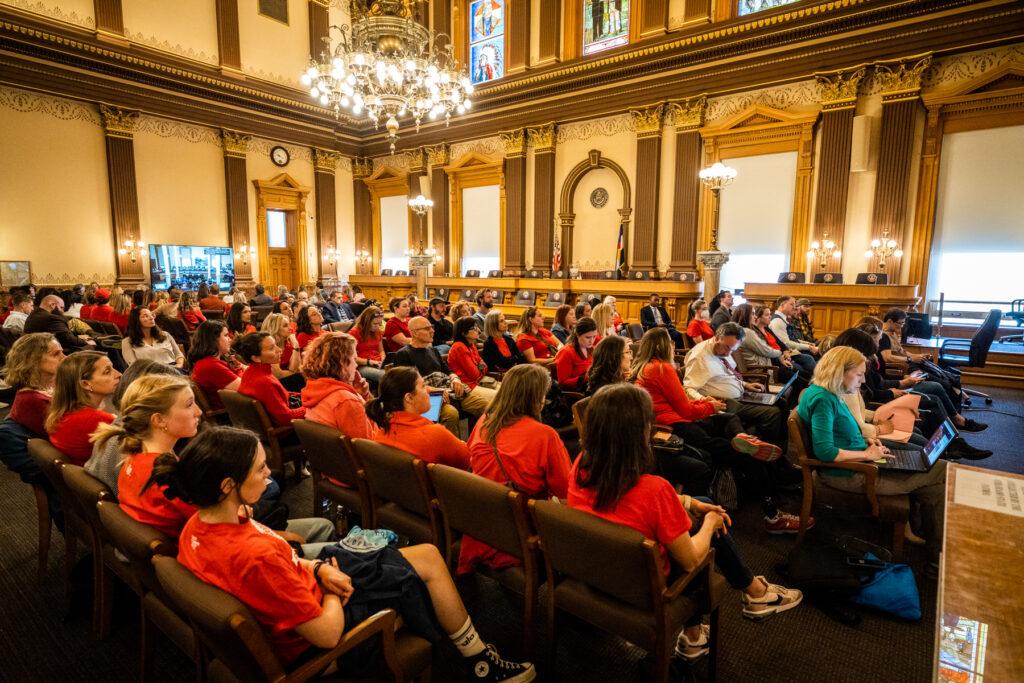
Updated 3:04 p.m., May 1, 2023
After a long, emotional hearing, an effort to ban assault weapons failed in a Democratic-controlled committee at the state legislature earlier this month.
Like all gun-related bills, the proposed ban was the subject of major public interest. Dozens flocked to the statehouse to listen and testify during committee.
Dr. Bethany Price, a family physician in Grand Junction, wrote in to Colorado Wonders after the bill failed. She wanted to know whether the legislature is the only avenue for an assault weapons ban.
“Why can't we ask the voters, the people of Colorado, what we should do about these weapons?” Price asked.
The answer has more to do with political strategy than legal barriers.
In theory, a group can work to place a ballot initiative on the statewide ballot. That process involves taking a proposed initiative to the Secretary of State, agreeing on the language that would be on the ballot and gathering valid signatures as a sign of support. Then, and only then, will voters have a chance to have a say on a possible assault weapons ban.
Non-fiscal ballot measures like gun control rules can only be considered in even-year elections.
While they are allowed to pursue a ballot initiative, gun-control groups and Democratic strategists aren’t eager to do so at the moment. Tom Mauser, spokesperson for Colorado Ceasefire, cited finances as a major reason they wouldn’t pursue a ballot initiative right away.
Mauser’s group predicts it could cost at least $5 million to run a ballot initiative campaign.
“Is that expense worth it after just one rejection of a bill?” he said.
According to Mauser, there’s some debate about whether that money could be more useful in supporting candidates in close races. The price to run an initiative could also rise even higher since opposition efforts against an assault weapons ban will likely be well funded.
Rick Ridder, a Democratic pollster and partner at RBI Strategies and Research, said another hurdle is that there's no clear definition of what constitutes an assault weapon. Depending on how a ballot initiative ends up phrased, it might be easy for the industry to get around the restrictions.
“As we've seen from the legislative activity, there is a broad definition of assault weapons and a determination of what is the proper one needs to be made,” Ridder said.

In the proposed bill that failed in April, lawmakers defined an assault weapon as a “semiautomatic rifle” that uses detachable magazines and has one of a number of features, such as a pistol grip, folding stock, barrel shroud or threaded barrel, among others. It would’ve also banned the sale of certain .50 caliber rifles, semi-automatic pistols, shotguns with revolving cylinders and semiautomatic shotguns, with various conditions for each type of firearm.
Ridder said a ballot measure would also draw a lot of attention and could fuel a red wave.
“Do you want to have such an initiative on the ballot in 2024? It is likely to bring out a group of voters anti-assault weapon ban, who would not be particularly favorable to Democratic legislators at the voting booth,” he said.
Josh Penry, a Republican political consultant with the 76 Group, agreed. He said GOP lawmakers wouldn’t hide from an election defined by a gun control measure.
“I suspect a lot of Democrats would be working hard behind the scenes to keep it off the ballot because it forces them to choose between constituencies who want to support a Democrat, but who support [the] Second Amendment. So for voters in places like Pueblo or Adams County, or even urban pockets in Colorado Springs or Greeley, that tend to be more Democratic,” Penry said.
Voter turnout in the 2022 midterms was about 66 percent, and a ballot measure as contentious as an assault weapons ban will likely incentivize non-voters to participate. That type of participation boost is common when matters involve Constitutional rights.
Colorado has passed other gun control laws this session, but an assault weapons ban doesn’t seem to be in the cards
Gov. Polis signed several of those bills into law Friday, including one that creates a three-day waiting period for all gun purchases in the state. One also increased the minimum age for purchasing a firearm to 21 and another expanded who can request red flag interventions, which can be used to remove weapons from dangerous people. A fourth makes it easier for victims of gun violence and their families to take legal action against weapon manufacturers.
There’s one last bill still in the process that would ban what are known as “ghost guns,” but with less than a week left in the legislative session, that will have to move quickly if it’s going to pass.
CPR’s Bente Birkeland contributed to this report.
Editor's note: This story has been updated to correct what type of doctor Dr. Beth Price is.








